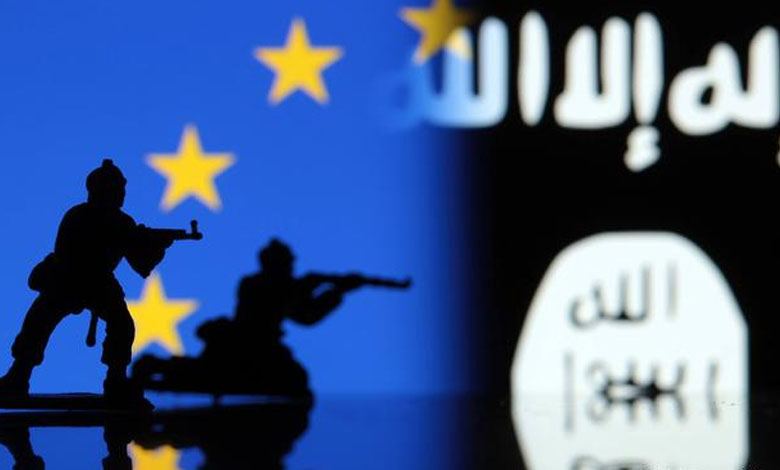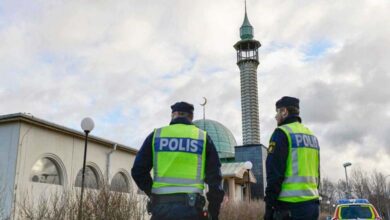Europe leads uprising to stop violent groups – Details

The Terrorism in Europe Index, produced by the European Center for Counterterrorism and Intelligence Studies, reveals figures that reflect strong threats regarding the growth of extremist activity by so-called “Salafi Jihadist” groups and the extreme right, as efforts to counter the Brotherhood continue and intensify in most European countries.
European threats
The Center’s annual report states that terrorist threats in European countries can be refuted as follows:
In France, radical Salafism poses the greatest threat to French authorities, as Salafi jihadism’s activities grow inside mosques. Concern is mounting within France about the effects of Islamism in the democratic process. France faces a growing threat from violent right-wing extremists, who aim to create political tension and chaos, and France’s far-right groups seek to change public order.
In Britain, the Muslim Brotherhood represents the greatest danger within the state, where extremism represents an imminent danger to Britain, and so-called Salafi “jihadism” and political Islamist groups such as the Muslim Brotherhood remain more cohesive and permeable within British society.
In Sweden, the threat of terrorist organizations becoming increasingly active, according to the intelligence services, the Brotherhood is trying to exploit their links to extremist organizations at home and abroad to create a parallel society in Sweden. Far-right groups are also exploiting demonstrations and protests in Sweden to violence and achieve political gains, in some cases even attempting to kill and trespassing against law enforcement.
In Germany, the government’s policy toward radical Islamism and Salafism has changed. The German government has begun to move towards legislation, particularly seeking to restrict the sources of funding for radical Islamist groups. The German security services launched raids against mosques, organizations and centers belonging to political Islam. Germany continues to live on the extreme right in parallel with radical Islamist groups, and, following the war in Ukraine, populism has stepped up its activities.
In Austria, which has been the most active confrontation with the Muslim Brotherhood terrorist organization in recent years, Vienna-passed laws, regulations, and procedures have tightened sanctions on incubators and facilitated surveillance, particularly of hate speech and extremism and the use of the Internet to limit the activities of extremist groups.
Strong confrontation
Maher Farghali, a researcher on terrorist groups, said: “Political Islam groups, especially the Muslim Brotherhood and the extremist Salafists, monopolize the preaching discourse in mosques in Europe, pointing out that there are movements against the groups and activities of terrorist groups in many European countries, drying up sources of financing, stiffening sanctions on incubators, and conducting reviews and updates on anti-terrorism strategies, laws and legislation”.
He added that with the rise of extremism and terrorism tendencies within the European continent, and the increasing scrutiny of the activities of the Muslim Brotherhood, we started to witness what could be described as a “European uprising” against the Brotherhood, where some European countries took a number of measures aimed at tightening control over their activities and over their affiliated entities and institutions, but none of these countries reached the prohibition of the Brotherhood completely, and these measures came individually and not within the scope of a common European action, which reduces its effectiveness.
He pointed out that a series of measures can be taken to confront the Muslim Brotherhood in Europe; clarifying the seriousness of the Brotherhood’s discourse on these countries, restricting and drying up Brotherhood funding sources, and establishing lobbies that pressure European governments to adopt more measures aimed at restricting their activities.












